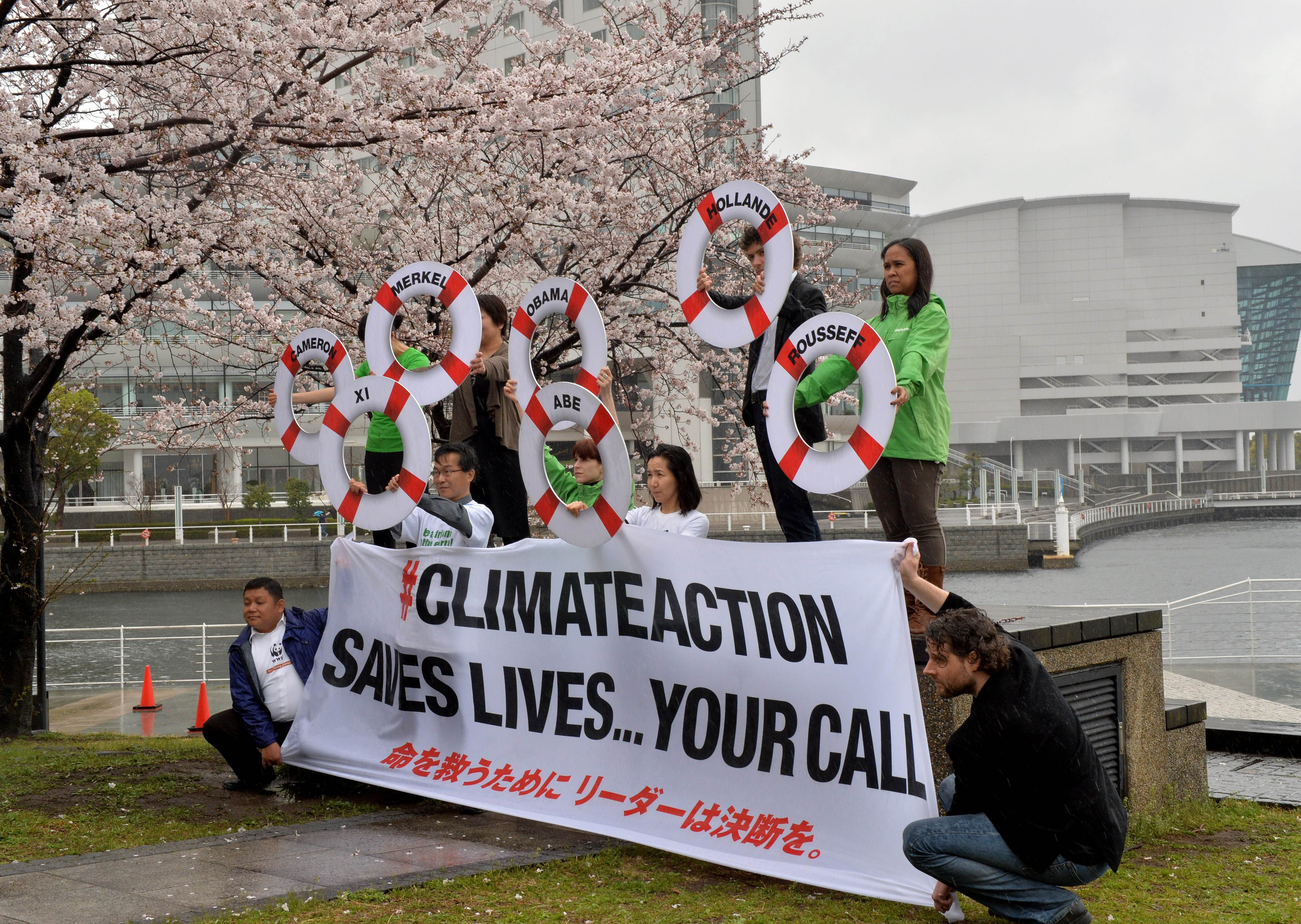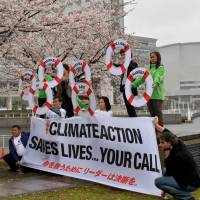Global warming is depleting fresh water and crops, destroying coral reefs and melting the Arctic, the United Nations said Monday in a report that concludes the world is ill-prepared to face many new threats.
Climate change has brought "key risks" that endanger lives and health worldwide, including storm surges and coastal flooding worsened by rising sea levels; infrastructure destruction and the disruption of power networks, communications and health services by extreme weather, and the depletion of crop production due to droughts and floods, the U.N. Intergovernmental Panel on Climate Change (IPCC) said.
"If you look around the world today, people, cities, businesses and nations aren't prepared for the climate-related risk we face now," Chris Field, the U.S. professor who co-chaired the 309 scientists drafting Monday's report, said in a phone interview from Yokohama. "The climate changes that have already occurred have been widespread and have really had consequences. It's not the case that climate change is a thing of the future."
The report is designed to guide global lawmakers as they devise policies to reduce heat-trapping emissions and make their infrastructure, agriculture and people more resilient to a warmer world. It aims to influence climate treaty talks among 194 nations that are working to devise an agreement next year to rein in global warming.
"The IPCC is a bell tower," Field said after the report's release. "It is trying to allow the world to climb up to a high point so that it can see far and clearly into the future and to let people make smart decisions for their own purposes to use science to build a better world."
The researchers documented how climate change affects everything from retreating glaciers in East Africa, the Alps, the Rockies and the Andes to the bleaching of corals in the Caribbean Sea and Australia's Great Barrier Reef. Mussel beds and migratory patterns for salmon are changing off the U.S. West Coast, grapes are maturing faster in Australasia and birds are flying to Europe earlier in the year.
"One message that comes out very clearly is that the world has to adapt and the world has to mitigate," said Rajendra Pachauri, chairman of the IPCC. "The sooner we do that, the less the chances of some of the worst impacts of climate change."
Monday's 49-page study, dealing with "impacts, adaptation and vulnerability" of climate change is the second of three "Summaries for Policymakers" that the panel is preparing in its most comprehensive assessment of climate science, an exercise it last carried out in 2007.
The evidence of impacts is strongest for natural systems, and there are early warning signs that damage to coral reefs and the retreat of the Arctic Sea ice may become "irreversible," while a "large fraction" of land and freshwater species face a growing risk of extinction, the scientists said. Some impacts on cities and societies are also attributable to climate change.
"Climate change is not some distant threat, it's happening now and being felt everywhere," said Andrew Steer, president of the World Resources Institute. "The warning signals went off long ago, and we are now suffering the consequences of our inaction."
"The choices we make now will affect the risks we face for the rest of the century," the authors wrote, while warning that the uncertainty surrounding future vulnerability is large. The scientists "reformulated the challenge of managing climate change into a challenge of managing risks," said Field, a professor of environmental earth science at the Carnegie Institution for Science in Stanford, California.
"It is not just polar bears, coral reefs, and rainforests that are under threat: it is us," Kaisa Kosonen, political adviser to the environmental group Greenpeace International, said to reporters in Yokohama, where the report was published Monday. The word "risk" appears more than 5,000 times in the wider underlying report that spans thousands of pages, she said.
"No single country causes climate change, and no one country can stop it," U.S. Secretary of State John Kerry said. "But we need to match the urgency of our response with the scale of the science."
Kerry, who was known as a leader in the fight for U.S. action on climate change when he was a senator, is weighing whether to approve TransCanada Corp.'s Keystone XL pipeline to bring oil from Canada to the U.S. Environmental groups oppose the pipeline, saying it would contribute to greenhouse-gas emissions.


















With your current subscription plan you can comment on stories. However, before writing your first comment, please create a display name in the Profile section of your subscriber account page.